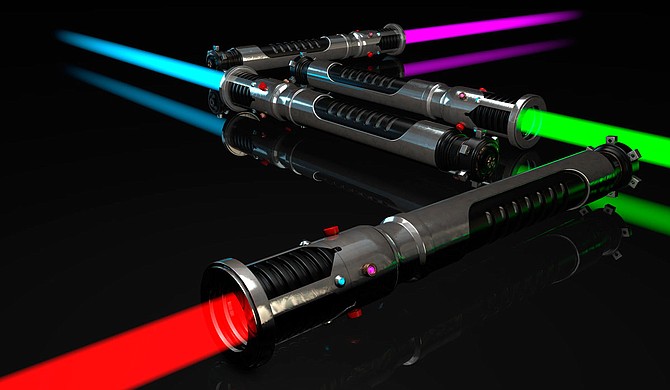Essentially, "Star Wars" sparked my curiosity to learn more about any and everything. It ignited an intense thirst for knowledge that went well beyond the parameters of that movie theater, and even well beyond the parameters of Earth's atmosphere. Photo courtesy Flickr/Remmac
In 2017, being labeled a black nerd, or a blerd, is seemingly a badge of honor. But a long time ago, in a galaxy far, far away, being labeled a blerd did not reside anywhere in the realm of "cool" or "popular."
Let's be honest, black folks didn't exactly hold blerds in high regard because being interested in science fiction or comic books was considered lame in the "thug culture" that dominated the '90s, and white folks didn't hold us in high regard because we were, well, black.
In order to be recognized as a blerd, not only does one have to have a year-round tan, but you have to truly appreciate "Star Wars." No, not every blerd is consumed with "Star Wars" or its expanded universe (both canon and non-canon material). And granted, some blerds may have never even seen a single "Star Wars" movie. However, not being fully invested in it doesn't mean blerds everywhere can't fully appreciate the momentous impact that the franchise has had on our culture.
With "Star Wars: The Last Jedi" now in theaters, I reminisce about the first time I saw and subsequently fell in love with it. It was during one of George Lucas' many, many cash grabs, when he re-released the original trilogy (Episodes IV-VI) with "digital restorations" in 1997. Back then, I was a 12-year-old boy in Mississippi full of innocence and wonder.
I remember a childhood friend of mine convincing me to go see "Star Wars" at the theaters. It sounded like a boring venture, and one that would be a waste of my precious 12-year-old time. But I decided to be a good sport and tag along. From the moment Luke Skywalker was introduced, I was hooked, fully entrenched in the Skywalker saga that left long-lasting repercussions in the "Star Wars" universe.
From then on, that 12-year-old boy (now a full-grown-ass 32-year-old man) was fully invested in not only the "Star Wars" universe, but our real universe, and I began a quest to become science literate. Not because I wanted to study and work in the STEM field (I became a typical attorney living in Washington, D.C.), but because I wanted to see if it was possible for carbon-based life to create the science-fiction creatures I saw roaming around the different planets featured in "Star Wars." I wanted to see if hyperspace was "a thing," and if traveling faster than the speed of light is theoretically possible (it's not). Essentially, "Star Wars" sparked my curiosity to learn more about any and everything. It ignited an intense thirst for knowledge that went well beyond the parameters of that movie theater, and even well beyond the parameters of Earth's atmosphere.
My older brother, who is also a huge "Star Wars" fan, used to tell me that witnessing characters like Lando Calrissian (Billy Dee Williams) was a big deal in the 1980s. It was an absolute rarity to see an African American on a large-budget, blockbuster movie back then. Yes, in 2017, it is more commonplace (though not common enough), but "Star Wars" understood, back then, that representation matters.
It matters because it helps other young black nerds growing up in Mississippi or Alaska to fully appreciate his or her blackness as well as their geekiness and not to hide in the shadows of their own community. So to witness Lando Calrissian help the Rebel Alliance defeat the First Galactic Empire or to watch Finn (John Boyega) switch sides and join the Resistance may not seem like much to most, but to a person like myself, who has the words "Black Nerd" tattooed on his inner right arm, it means the world. No, scratch that, it means the universe.
Leslie McLemore II, a Jackson native, is now in Washington, D.C. He is a graduate of Jackson State University, North Carolina Central University School of Law and American University Washington College of Law.




Comments
Use the comment form below to begin a discussion about this content.
comments powered by Disqus